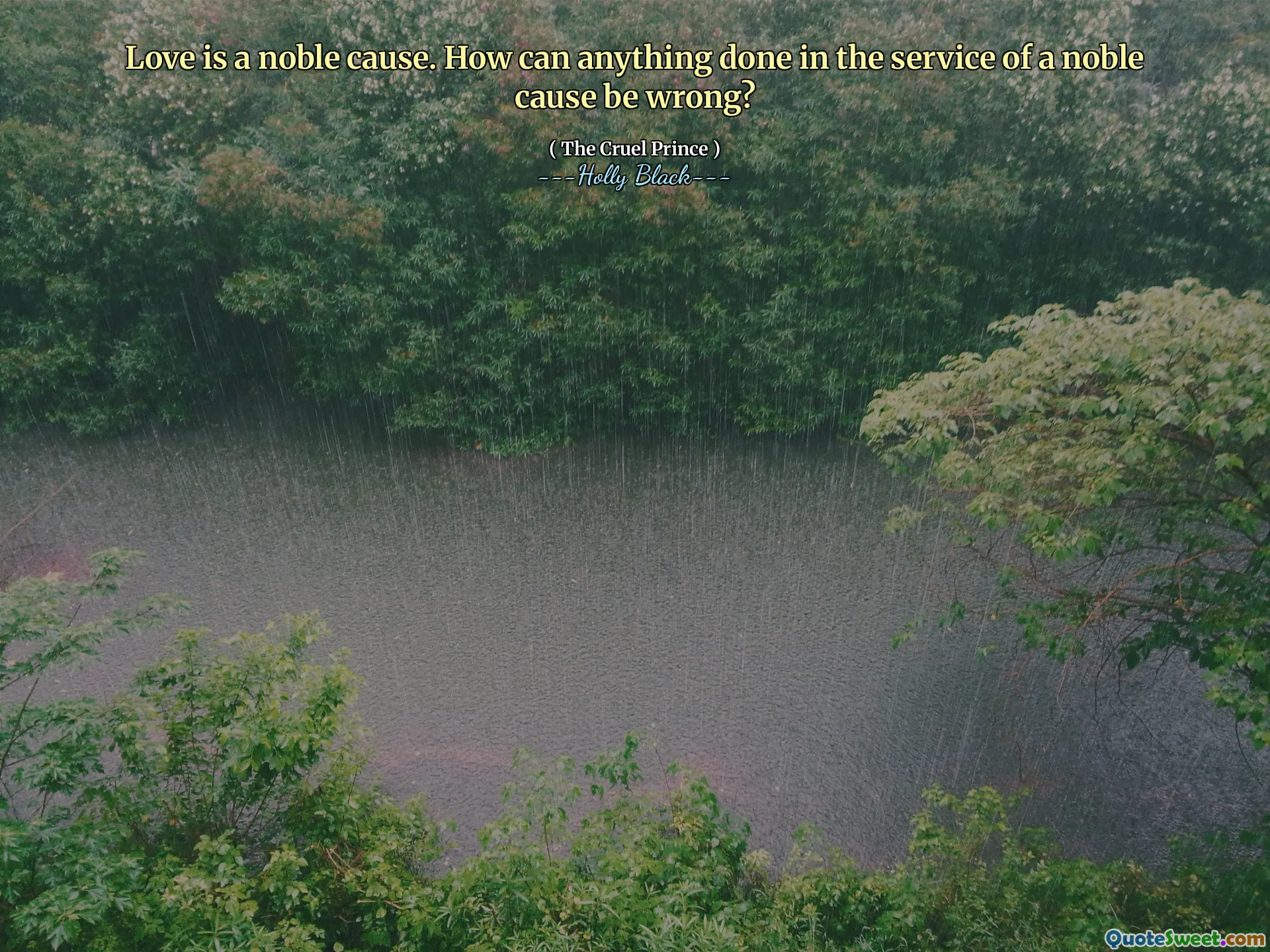
Love is a noble cause. How can anything done in the service of a noble cause be wrong?
This quote elegantly highlights the profound nature of love as a guiding principle toward noble endeavors. At its core, love embodies compassion, understanding, and selflessness—qualities that often give meaning and moral weight to our actions. When love motivates a person to act, whether in personal relationships or broader societal initiatives, it elevates the intention behind these actions, making them inherently pure and admirable.
However, the assertion that all actions undertaken out of love or in service of a noble cause are necessarily correct invites deeper reflection. History and human experience reveal instances where actions driven by love or noble motives have led to unintended harm or ethical dilemmas. For example, acts of extreme protection of loved ones can sometimes cross into possessiveness or obsession, raising questions about boundaries and morality.
Nonetheless, this quote encourages us to consider the value of love as a moral compass. In most cases, love fosters empathy, reduces conflict, and promotes unity—elements vital for societal harmony. When motivated by love, individuals are more likely to prioritize compassion and seek the common good. It invites us to evaluate our intentions: are our actions genuinely rooted in love and a desire to serve others? If so, we can be more confident in the moral integrity of our endeavors.
Furthermore, the quote prompts a broader discussion about the nature of morality—whether intentions alone hold moral weight or if actions must also be scrutinized for their consequences. Still, at its heart, the idea that love justifies noble actions serves as an inspiring reminder that moral deeds rooted in genuine care are worth aspiring to, even amidst complexity and uncertainty.






